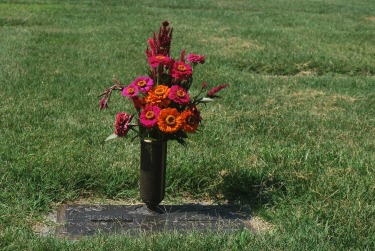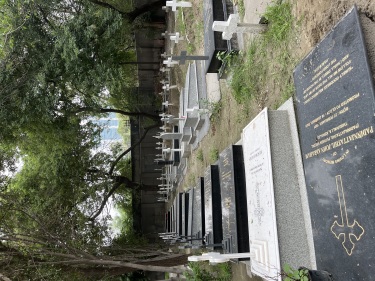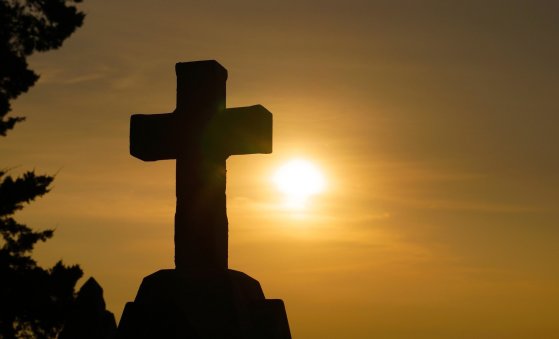
Three independent fact-finding teams investigating incidents across Odisha between March and April 2025 have uncovered alarming patterns of targeted violence, coercion, and constitutional rights violations against Christians, particularly those from Adivasi and Dalit communities.
The investigations, conducted in Nabarangpur, Gajapati, and Balasore districts, documented numerous cases of burial denials, forced religious conversions, police brutality, and institutional failures to protect religious minorities.
“I am deeply shocked that such gross violations of human dignity are happening to Christians in Odisha,” said Fr. Ajay Singh to Christian Today.
Singh, a Catholic Priest and law scholar who participated in the fact-finding missions, added: “The testimonies are heartbreaking - families forced to convert to Hinduism while their loved one’s body lies before them, or having to accept their deceased being ‘converted’ to Hinduism just to secure burial.”
In Nabarangpur district, the most severe documented case involved 20-year-old Saravan Gond, who died in an industrial accident in Mumbai on April 15, 2025. When his body was returned to his village of Melbeda, a Hindu mob refused to allow his burial unless his family converted to Hinduism.
According to the Odisha Lawyers Forum report: “The deceased’s mother and minor sister, who tried to intervene, were also beaten. The mob chased, disrobed, and assaulted them while hurling caste- and religion-based abuses.”
Despite police and officials being present, they “left the village, leaving the grieving family insecure and unprotected.” The next day, “a group of nearly 150 agitators gathered for a meeting in the presence of the Tahasildar (sic) and police officials. They openly threatened the deceased’s family, demanding they leave Christianity or face death.”
The report details how the family was “forced to sign blank sheets of paper” and later that evening, after officials departed, “the deceased’s relatives were forcibly taken to the burial site and ordered to exhume the body or be killed.” The report states: “The deceased’s uncle fainted during the exhumation. Coffin was desecrated and thrown away. The burial site was vandalized.”
This case represents just one of eight documented incidents in Nabarangpur between 2022 and 2025 where Christian families were denied burial rights. The fact-finding team described a pattern where “burial has become a site of religious coercion” with “police and local officials either indifferent or actively complicit.”
In October 2024, the body of 27-year-old Madhu Harijan from Menjar village faced similar treatment. The report states: “The Hindu agitators insisted that the deceased must be ‘converted to Hinduism’ as a precondition for burial in the village.” With no support from officials, “the family finally succumbed to pressure from the dominant Hindu villagers.”
The report continues: “The specially prepared coffin was discarded. Instead, the body was wrapped in a coarse village mat (‘patti’), tied to bamboo sticks, and carried away without Christian rites.” Family members lamented that “there was no prayer, no final blessing, no Christian rites. Only forced rituals. We were robbed of our last goodbye.”
In Gajapati district’s Mohana block, factfinders documented a case of direct police violence against tribal Christians on March 22, 2025. According to their report, police “entered the Catholic Church premises without a warrant and desecrated the sacred space” while young tribal women were preparing for Sunday prayers.
The report details how “two young women belonging to Kandh tribal group, were beaten with sticks within the Church and then dragged almost 300 meters away to a police bus, being abused all the way.” Two minor girls, ages 12 and 18, ran for help but were pursued by police.
A 38-year-old tribal woman cook who tried to help was severely assaulted: “Two male police caught hold of her neck and gave a strong blow to the face, tore the kurtis (upper clothes) of the woman pulling at the neck without any concern that they were outraging the modesty of the woman.”
Two Catholic priests who came to investigate were attacked, with one priest suffering “a fractured shoulder blade. At one time, he fainted & fell, but was dragged on to the bus.” The priests were accused of being “Pakistanis” and converting people. The team noted this was “the first time that the Catholic priests are being paraded and beaten by the police in Odisha known history.”
In Balasore district’s Raibania region, tensions began with the burial denial of Budhia Murmu on December 18, 2024. The fact-finding report notes that “anti-social people from other faith under the banner of Sarna Majhi/Majhi Pargana” stopped the burial “on the plea that the burial was against their traditions; hence would not be allowed.”
The situation escalated when “the Police asked the priest to produce a caste certificate” and contacted his native place officials, yet “the priest is yet to know the contents of the complaints nor received any complaints.” The team noted that when officials called peace meetings, “the second party did not turn up.”
The report states that “a couple of local daily newspapers with misrepresentation of facts in a series of articles over two months” were “alleging the Christian Adivasi destroying the traditional Adivasi culture by embracing a certain religion.” The report adds that “The Majhi Paragan group claimed the burial and prayer services were against village tribal culture and violates 13(3)A of the Constitution of India” despite the fact that “The Adivasi Christians had embraced Christianity over third generations.”
All three fact-finding teams highlighted institutional failures in protecting constitutional rights. The Nabarangpur report concluded: “The Odisha Lawyers Forum found gross violations of fundamental, constitutional and human rights of the most vulnerable communities of Adivasi, Dalit and religious minorities in terms of equality before law, right to freedom of expression, thought, belief and association, more importantly, the right to life and a dignified burial.”
The team noted that these violations took place “in the assembly constituency and district of the Minister for SC, ST and Minorities in the Odisha Government,” adding that while “the Minister could not be held responsible for the past; however, the Minister has a duty for course correction.”
“These actions not only disrespect the dead but blatantly violate constitutional provisions, Supreme Court rulings, and NHRC guidelines on upholding the dignity of the deceased,” Fr. Singh added. “What disturbs me most is the systematic nature of these violations and the apparent indifference of local authorities.”
The reports documented deeply personal trauma in the affected communities. One Christian villager told investigators: “We are haunted by uncertainty. What will happen when the next person dies?” Others described living “under a constant cloud of fear, exclusion, and uncertainty, particularly regarding the right to bury their dead with dignity.”

The Gajapati investigation found “palpable fear, insecurity and disbelief among the children, women and including the priest as the protectors have turned into perpetrators.” They observed that the incidents reflected “handiwork of some identified communally biased police personnel towards religious minorities, and/or with a casteist mindset towards tribal groups.”
The three fact-finding teams presented detailed recommendations, including training for police and administrative officials on constitutional rights, enacting specific legislation to protect burial rights, implementing existing laws against religious discrimination, and creating district-level mechanisms to monitor and protect minority rights.
The Nabarangpur team concluded that the district “is sitting on a volcano of communal violences unless the state urgently looks into the whole issue and settle it.”




